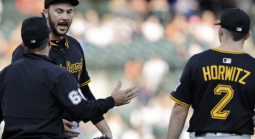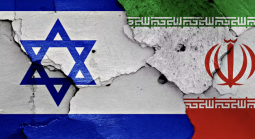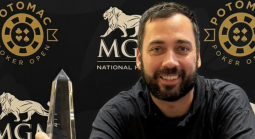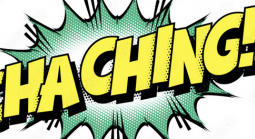Annie Duke Talks Darfur With Jenny Woo
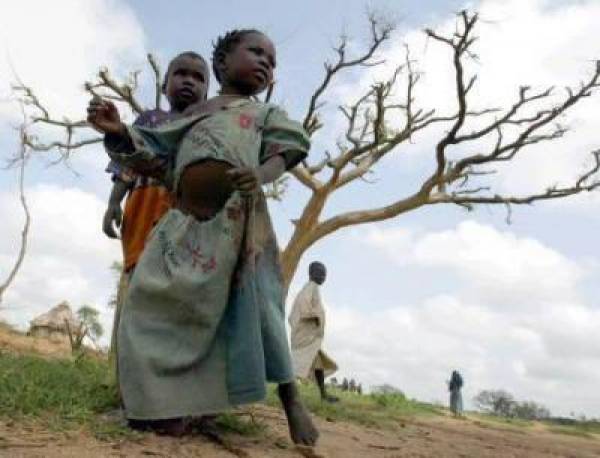
Annie Duke sat down with Gambling911.com Senior Correspondent, Jenny Woo, to talk about how intertwining poker and charities can be a great thing.
The amount of money that Annie and many others in the poker community have raised is outstanding and they're not close to being done. I've never met someone who is more passionate and dedicated about so many great causes. She did however express to me that she would be getting back out there and "start being a poker player again." Watch out poker world! That's all I've got to say.
I'm amazed that she's been able to accomplish so much and yet still be a great mother to her kids. I also asked her about her experience speaking in front of the Judiciary Committee on behalf of the Poker Players Alliance and Internet Gaming as well as the scandal involving UltimateBet.com, the online poker room she represents and remains loyal to. Read my entire interview with Annie and see what else she's been up to.
JENNY: Tell our readers about AUFA (Ante Up For Africa) http://www.anteupforafrica.org/ and how you got involved with such a great cause?
ANNIE: Basically what happened starting a few years ago I had been doing a lot of charity events that were poker events. Poker is a really amazing way to raise money for charity. Whenever you can give somebody value back where they feel like they're having a really good time while also donating to a good cause it's always going to be much more successful. People like going in and playing a poker tournament and feeling like there's prizes involved and there's glory of the win. They're much more willing to donate these larger dollar amounts when you're giving them value added. So I had done an event for the Children's Hospital Boston, which had raised $600,000; we did that twice in which we had raised $700,000 the following year. I've done something for Math of America (http://www.mathforamerica.org) which we raised $2,500,000.
I thought what an amazing fund raising tool. So I was having lunch with Don Cheadle who is a friend of mine and he had just done the book "Not on Our Watch". He's been very involved in the issues of what's happening in Africa and at that time we were pretty focused on Darfur. He had obviously done the movie "Hotel Rwanda" which is how he really got involved in knowing what was going on there. It's really the point of what happens when you have these governmental shifts in Africa - obviously Darfur is in a different area - but he had gotten drawn into Darfur basically because he was very interested in Rwanda and ended up interested in that area of the world.
While we were having lunch I just said to him, "what's happening in Darfur is so horrible." This was right in September of 2006 and in the front edge of this immerging issue/problem that people were very unaware of. I then said, "nobody knows what's going on in this part of the world and we should do a poker event for them." He said, "yeah definitely - we should def do a poker event for them." I told him, "We could raise something like $25,000." I really wasn't thinking we were going to do anything huge, but we could raise some good money somewhere around $25,000 to $50,000 for this cause and it would be amazing.
The next day he saw another friend of ours, Norman Epstein, and interesting enough he had the same conversation with him. Norman said, "hey don't you think we should find a charity and maybe we can start trying to do something with what's happening in Darfur."
I thought - this is too weird that we're having the same conversations. Honestly, that's sort of how it's been. We have some people who volunteer for us and who are amazing. Brandon Rosen and Jeff Goldenberg did an incredible job for us with the event organization last year as volunteers. Then there's the WSOP, that team headed by Jeffrey Pollack, has been incredible to us. Initially, Gary Thompson was on board in terms of PR but now it's obviously Seth Polansky. But the WSOP team has been incredibly generous and an amazing partner. And really that's how it started.
We kicked around the idea of doing our first event in California then I said, "you know what- let's get a meeting with Jeffrey Pollack and see if we could do something at Harrah's." I didn't even think it would be wrapped into the World Series; I was just thinking maybe they could let us do something at Caesar's or something under the World Series banner. So Jeffery said, "No, we'll make it a WSOP event"! It was so incredible.
That was in November of 2006. We ran our first event in July of 2007 and raised about $700,000. Over the course of the next year, San Manuel Casino stepped up and did a really big event where the Mission Tribe of Indians donated $500,000 to the charity. Then we had UltimateBet who stepped up and done quite a big sponsorship for us too - another six figure sponsorship. We've been very lucky with our winners because we don't make any money from that Vegas event unless the winners donate their money back. It's a matter of law that we can't take anything out of the prize pool. If people don't donate their money back then we don't get any money. Theoretically, if everybody walked away with their winnings we'd make zero for that event. We've been really lucky having generous people at the final table. The first year Dan Shak and Brandon Moran split first place and donated everything back. Then this year John Hennigan won first place and he donated all of his winnings back (over $150,000). He was so generous.
JENNY: It seems like they see your vision and want to help make it reality.
ANNIE: Oh yeah. It's incredible. Hennigan just came out to another fund raising event that I did in New York last month and gave money there too. He's just a generous individual and great guy.
We've just been really lucky having people like Phil Hellmuth who was at the final table last year. He donated everything back. We've been really really lucky with getting the prize pool back; not all of it but I don't expect everybody to donate all of it. I would never expect that. But they do at least let me ask - at least let me respectfully request that they donate half. We've gotten that and more. To date - we're close to about $2,500,000 since we ran our first event in July of 2007.
JENNY: Are these events just for "Ante Up for Africa" or has it been for several different causes?
ANNIE: What we do with the money is that we kind of act as a clearing house. There are a variety of charities that we think are doing really amazing work in the part of the world we're interested in - which is Africa. We've been very focused on Darfur although the focus is moving into Congo and Zimbabwe right now with what's happening over there. We've had several beneficiaries. We usually work with "International Rescue Committee" (http://www.theirc.org/); we've had a partner with the "Enough Project" (http://www.enoughproject.org/) the whole time and will continue to have a partner in them that is done through "Center for American Progress" (http://www.americanprogress.org/). We've also partnered with "Not on Our Watch" (http://notonourwatchproject.org/) and now we also have an amazing new partner - "Refugees International" (http://www.refugeesinternational.org/) which is an amazing charity run out of D.C. They actually don't take any government money or U.N. money, which allows them to stay completely neutral. One of the reasons why we partnered with them is because all their money comes from donations. They don't take any other kind of money, which allows them really - I think - to do better work because they aren't holding to any political agendas. Basically, "Refugees International" focuses on the 41 million refugees around the world. We have an extreme focus on what's happening in Africa. Essentially, what we do is we design our attention between two things:
1. Getting money to the people who need food, shelter, water, etc. Which is extremely important.
2. We get money to organizations that can affect lasting change. You can send food and medical supplies to the refugees but if there isn't anything happening that isn't going to stabilize the area then you're really just sticking your finger in a dam. These governments could change and change their policies - particularly in Darfur - and that doesn't happen without pressure. America is paying attention and is taking some kind of stand against that government. You're not going to get any change and refugees will just continue to be created if they're not going to be able to get that area of the world to settle down.
We really divide the money up between political money and actual aid.
JENNY: You seem very passionate about using your talent in some great charities - what's next for you in the charity circuit or is this your main focus?
I have a few things; one is that I sit on the board of the "Decision Education Foundation" (http://www.decisioneducation.org/).
We're going to be running a big poker event this spring which Erik Seidel and my brother (Howard Lederer) have been nice enough to agree to go to. I think I'm going to grab Andy Bloch for that as well. What that organization does is it creates curriculum for schools in America that teaches decision making skills. The idea is that we do a lot of teaching of math, how to think properly and how to make a decision. Obviously, without those kinds of skills you're not going to see a lot of improvement on how our country is run eventually and also the way that people run their own lives. The down and dirty thing is - How do you get a teenager to understand they shouldn't be getting in a car drunk or with somebody who is drunk? How do you get them to understand that the choices they make now may have a deep affect on them later? We really get them to understand how to frame decisions. Essentially, the idea is it gets integrated into the existing curriculum.
For example - you're teaching (as young as) kindergarten. Take the story "Goldie Locks" - Instead of talking about why she was a bad girl - You ask - when did she make a bad choice? Well obviously she made a bad choice going into the bear's house. What were the consequences of that choice? What other choices could she have made?
So it's really simple things like that. It gets them to start from the time they're very young to think about decisions and consequences and how they're tied together. It's not as sexy as Africans in need but it's equally important. This is something I'm very passionate about as well.
There are a couple of other things that I've been very passionate about. I've been doing more work in raising money for Children's Hospitals. I've done the "Children's Hospital of Boston" (http://www.childrenshospital.org/) two years in a row. This year where backing Dan Shak and Phil Hellmuth with "Children's Hospital of Philadelphia". Eric Brooks is also a big donor for "Children's Hospital of Philadelphia" and he sits on the board of "Decision Education Foundation". I want to be supportive of the things that he's passionate about too. I've also always been involved with "Make a Wish Foundation". There's also little "other" things that I do in which I have a hard time saying no to.
Read Part Two of my Interview Here
Part Three of This Interview With Annie Duke Here
----
Jenny Woo, Gambling911.com Senior Correspondent









